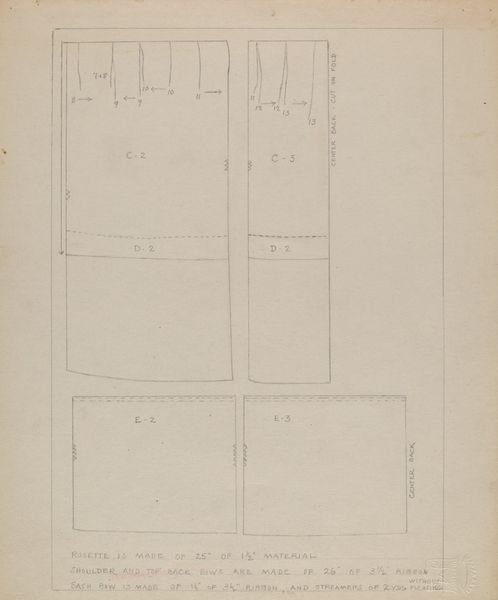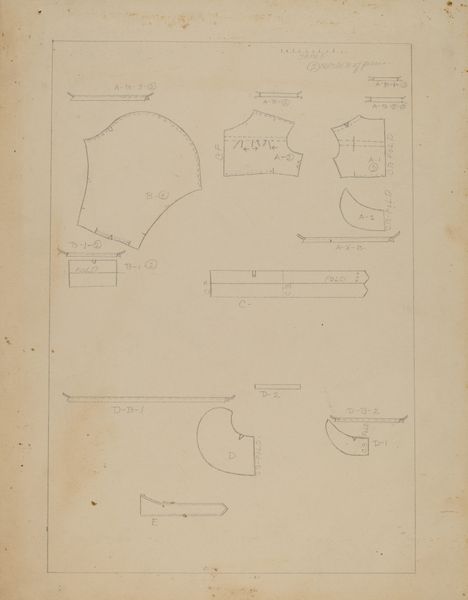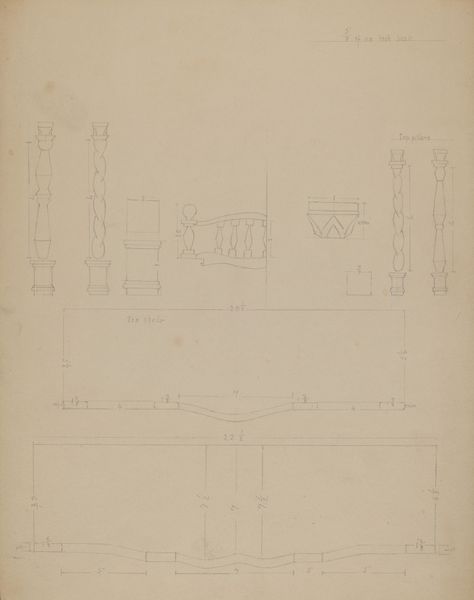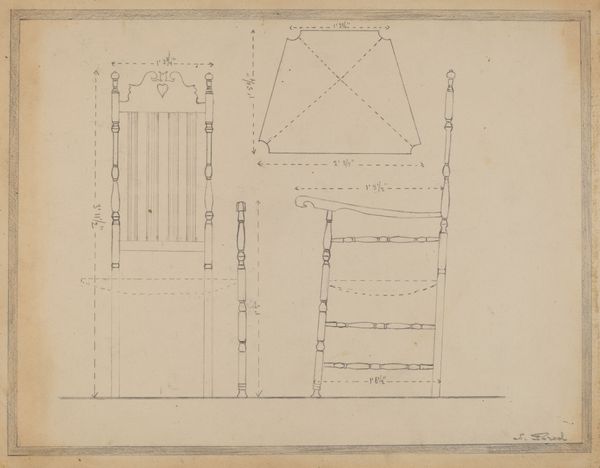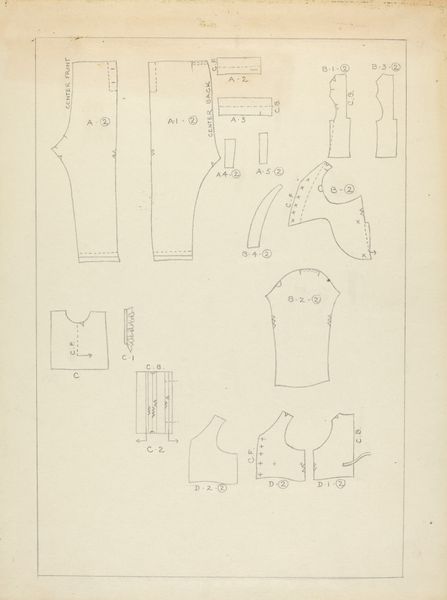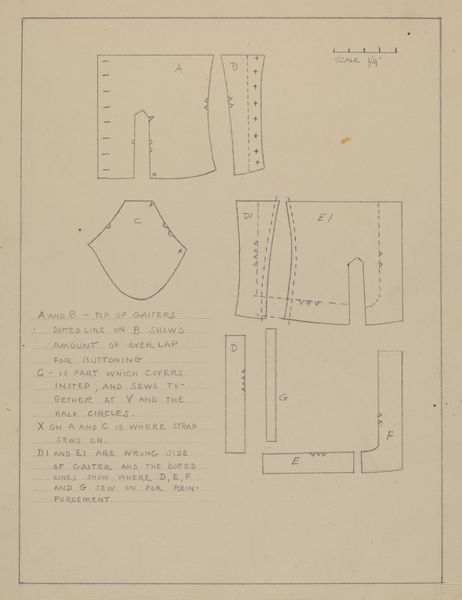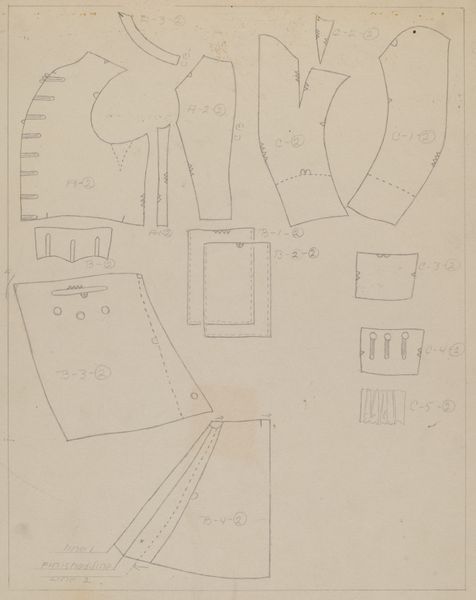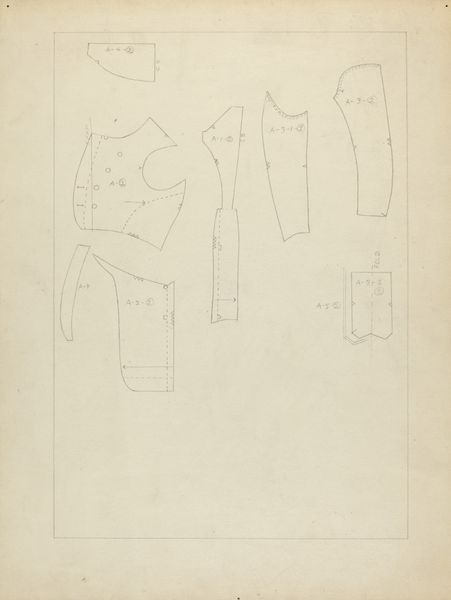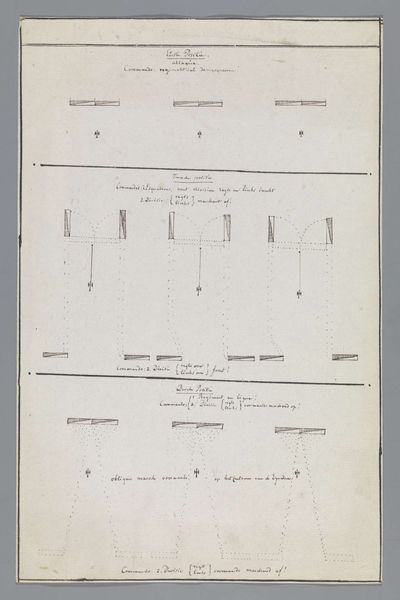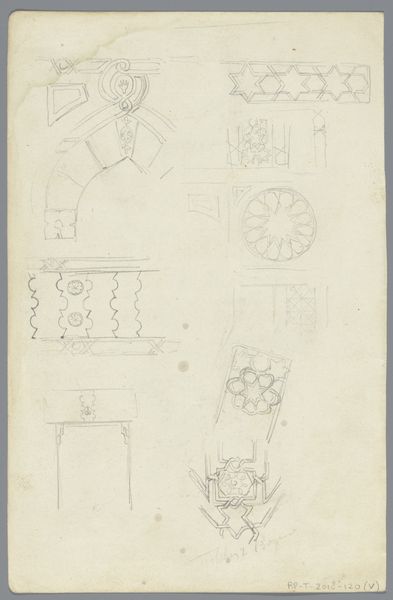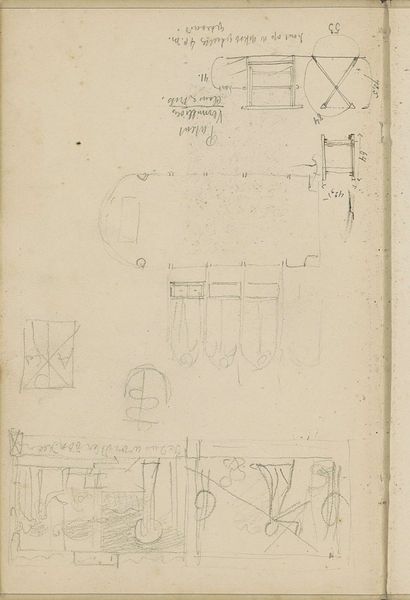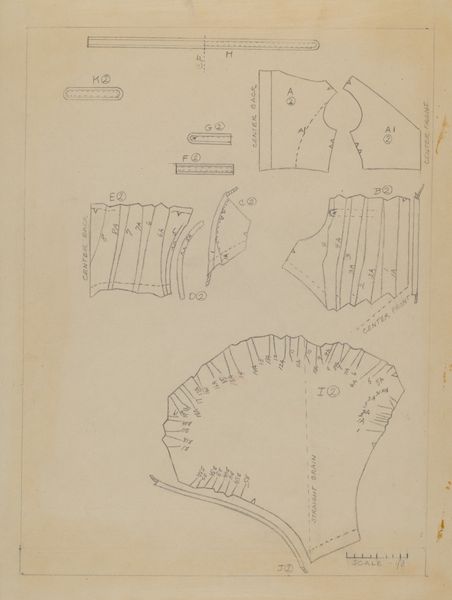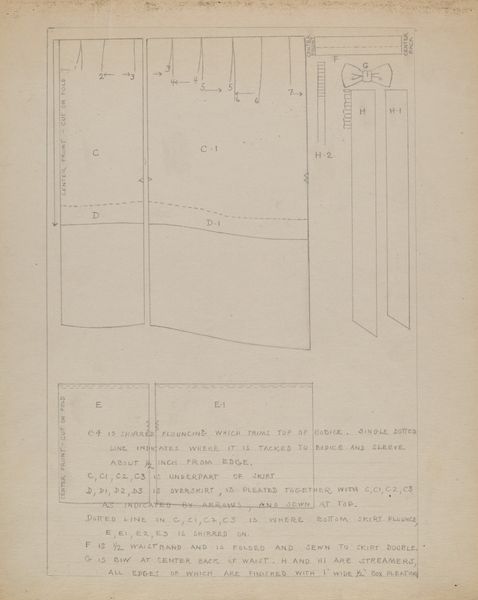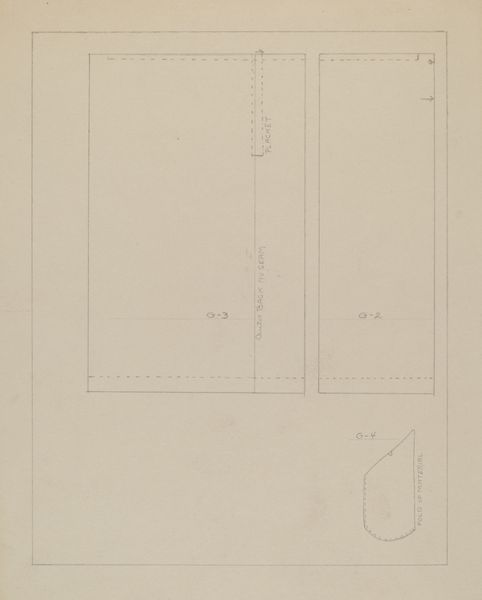
drawing, paper
#
drawing
#
aged paper
#
light pencil work
#
sketch book
#
hand drawn type
#
paper
#
personal sketchbook
#
idea generation sketch
#
sketchwork
#
geometric
#
sketchbook drawing
#
storyboard and sketchbook work
#
sketchbook art
Dimensions: overall: 29 x 22.5 cm (11 7/16 x 8 7/8 in.)
Copyright: National Gallery of Art: CC0 1.0
Editor: This is "Girl's Dress (Pattern)", a drawing on paper from around 1937, by Nancy Crimi. It reminds me of the dressmaking patterns my grandmother used, very utilitarian. What do you see in this piece? Curator: I see a powerful commentary on gendered labor and the often-invisible work of women. It's a seemingly simple dress pattern, but situated within the historical context of the late 1930s, we must consider the economic pressures and societal expectations placed on women. The Great Depression was ongoing, and the ability to create clothing at home was crucial for many families. Editor: So, you're saying it's more than just a dress pattern? Curator: Precisely! This pattern represents agency within constraint. Women were often confined to the domestic sphere, yet skills like sewing allowed them to contribute economically and express creativity. Consider also, the handwritten nature of the pattern. Editor: The handwritten aspect feels really personal, and you can feel the presence of the artist. Curator: Exactly, and whose stories and labour are historically erased? By valuing "craft" we empower marginalized voices to dismantle traditional notions of 'high art' rooted in patriarchy and class divides. What are your thoughts on this tension? Editor: I hadn't thought of it that way, viewing it in contrast with more formal artistic practices… I will definitely be viewing more “utilitarian” artworks with more intention moving forward. Curator: Hopefully, by critically engaging we might dismantle exclusionary art hierarchies and center female contributions in history.
Comments
No comments
Be the first to comment and join the conversation on the ultimate creative platform.
